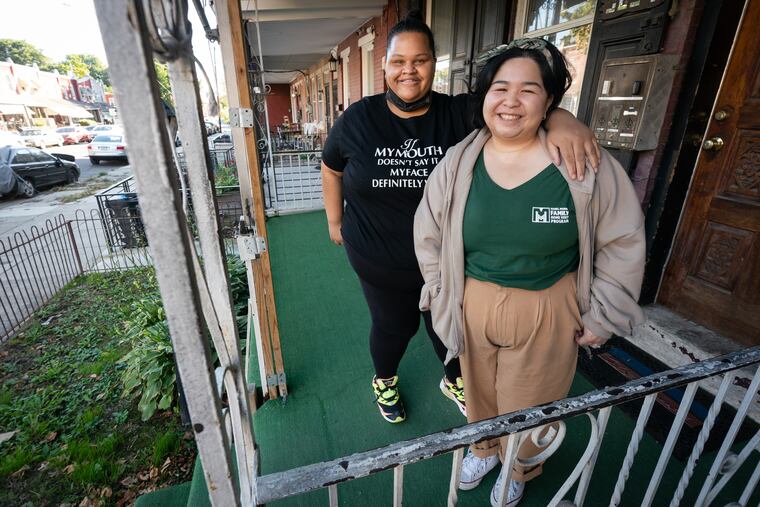Home visiting programs allow nurses to ‘meet families where they’re at.’ Advocates want Congress to extend its funding.
Funding for the Maternal, Infant, and Early Childhood Home Visiting program has been extended through mid-December.

NaTosha Robinson has stage four lymphoma and after losing her left lung in 2020 often struggles to breathe. Her 5-year-old daughter, Sierra, struggled with delayed speech development. Robinson wanted to prepare her for school but didn’t know how to address concerns like Sierra’s difficulty holding a crayon, while also coping with her own health challenges.
“It’s a lot being a single parent and doing it on your own,” she said.
Things changed in 2021, when Jackie Nguyen entered their lives through a federal program that provides at-home support to pregnant people and families with young children who are at risk for poor physical and mental health.
Nguyen helped Robinson find an occupational therapist, taught Sierra how to write letters, and even tracked down an air conditioner for their apartment ahead of a heat wave.
“We meet families where they’re at,” said Nguyen, a nurse with the Mabel Morris Family Home Visit Program, one of the Philadelphia-based organizations that use the federal dollars to work with families.
But funding for the Maternal, Infant, and Early Childhood Home Visiting program, or MIECHV, expires in December. Early childhood education, health advocates, and families like the Robinsons hope that Congress will not only reauthorize the program but also put more money behind it.
Satisfied families
In Pennsylvania, MIECHV supported nearly 30,000 home visits in over 2,800 households in fiscal year 2020. About 70% of those households were low income, and 12% had a child with developmental delays or disabilities.
Not all home visitors are nurses. MIECHV allows states to use the funding to support different interventions that promote maternal and child well-being, said Meredith Matone, scientific director of PolicyLab at Children’s Hospital of Philadelphia. This gives communities flexibility to respond to local needs.
In an evaluation of MIECHV, Matone’s team found that the Pennsylvania program led to healthier behaviors, such as mothers quitting smoking, and that families generally found the program helpful in preparing their children for school.
“When we talked to families we found high satisfaction,” Matone said.
But the need outstrips the program’s reach. A 2020 needs assessment by the PolicyLab found that only 1.5% of Philadelphia families eligible for home visits received support.
» READ MORE: New moms keep dying in the weeks after birth, and the risk remains highest among Black women
Bipartisan support
Congress funds the program in five-year increments, which would have expired on Sept. 30. Funding was extended through mid-December in the short-term spending bill passed last month to prevent a government shutdown.
In 2017, Congress allowed the funding to lapse for a few months.
Home visits continued, but the funding lapse created stress and uncertainty for program organizers and families who count on those services, said Lizz Tooher, senior director of child health and education at the Mabel Morris Family Home Visit Program. Some programs froze hiring and stopped enrolling new families. Smaller programs “really struggled to keep the doors open,” she said.
A bill to reauthorize MIECHV is making its way through Congress with bipartisan support.
In addition to reauthorizing the program, the bill would increase the funding for home visits. Pennsylvania received about $11 million through MIECHV in each of the last two years. The bill would double that within a few years, according to a projection shared by the office of Rep. Dwight Evans, a Democrat from Philadelphia who is a cosponsor of the legislation.
“For parents, for children, the benefit it will be is enormous,” Evans said.
» READ MORE: Pennsylvania receives $25.6 million to improve maternal and infant health at new Philly center
A cheerleader
Nguyen, the home visiting nurse, finds that the families she works with often need an advocate familiar with resources that are available in the community.
Working with a family in a home affords her a fuller view of their health needs than she could see in her previous role as a hospital neonatal intensive care nurse.
“I’m their cheerleader,” she said.
Robinson said that working with Nguyen changed her life, and, more important, her daughter’s. Sierra is now in kindergarten. She not only holds a crayon, she writes letters.
“By her doing great, I’m fantastic,” the mother said.